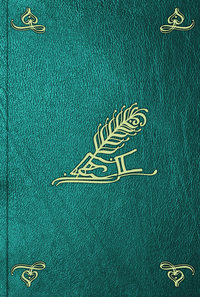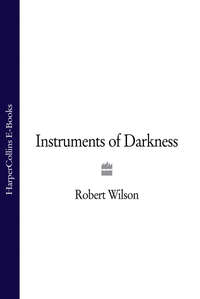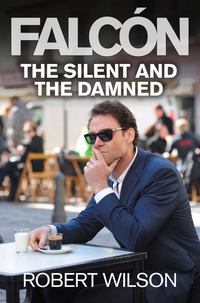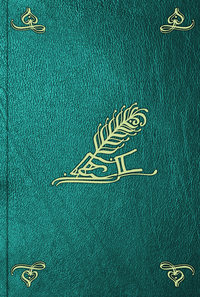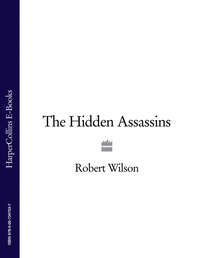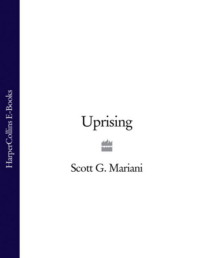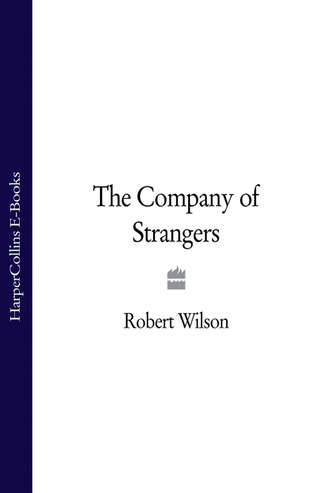
Полная версия
The Company of Strangers
‘Not yet,’ she lied.
‘His secret police. His Inquisitors. They root out all non-believers, the heretics and the blasphemers, and break them on the wheel.’
She looked sceptical.
‘I promise you, Anne, there’s no difference except it’s politics now and not religion.’
He beckoned the boy, who approached, whisky bottle in hand, and filled Wilshere’s glass to within a quarter-inch of the brim. He took an olive, bit out the pit, and threw it unconsciously into the garden. He sucked the top off his drink, lit another cigarette and was surprised to find his old one still going in the ashtray. He crushed it out, flung a boot up on to the chair and missed. He looked at his watch as if someone had burnt his wrist.
‘Better change for dinner. Didn’t realize it was so late.’
Anne stood with him.
‘No, no, you stay here,’ he said, patting her arm. ‘You’ll do fine like that. Perfect. I still smell of horse.’
He did. And whisky. And something sour, which smelled the same as fear but wasn’t.
‘Will your wife be joining us?’ Anne asked his retiring back.
‘My wife?’ he asked, turning on his boot heel, the whisky from his glass slopping on to his wrist.
‘I thought I saw her…’
‘What did you see?’ he asked rapidly, drawing on his cigarette, which he then flicked away across the terrace.
‘On the way down from my room. A woman in a nightdress…that was all. In the corridor upstairs.’
‘What did Cardew say about my wife?’ asked Wilshere, the savage edge to his voice even sharper.
‘Only that he thought she was unwell, which was why I asked you…’
‘Unwell?’
‘…which was why I asked you whether she would be joining us for dinner, that’s all,’ finished Anne, holding her ground against Wilshere’s sudden blast.
His top lip extended over the glass rim and sucked up an inch of whisky, the sweat from the alcohol in this heat standing out on his forehead in beads.
‘Dinner’s in fifteen minutes,’ he said and turned through the french windows, clipping the door, which juddered in its frame.
Anne sat back down, a small tremble in the tip of her cigarette as she put it to her mouth. She sipped more gin, finished smoking and walked out on to the crepuscular lawn. Lights were on down in the town – rooms here and there in buildings, streets brought up in monochrome, the crowns of the gathered stone pines billowing like thick black smoke, the railway station with people waiting, mesmerized by the track or staring off down the rails of past and future. Normality, and next to this, the vast and threatening blackness of the unlit ocean.
Two squares of light came on in the house behind her. A figure came to one of the lit windows and looked down on her although, in the twilight, she wasn’t sure if she was visible. She felt the drag, almost heard the sinister rattle of the pebbles as with the inevitability of tide she was being drawn into the complicated currents of other people’s lives.
Chapter 9
Saturday, 15th July 1944, Wilshere’s house, Estoril, near Lisbon.
The servant came out on to the lawn to get her, made her jump as she was lounging about in her own thoughts. She’d lost herself in the graininess where the town’s light met the darkening air. She turned to the boy and found that the façade of the house was now lit by footlights as if it was a monument. It only came to her then. The freedom of artificial light. She hadn’t thought about it looking down on the town. No blackout. This alarming country – free and yet forbidding.
She followed the boy. His thighs thumped out of the side of his trousers, massive as a weightlifter’s. He walked her across the terrace, already cleared of her half-drunk gin and tonic, and on to the dining room halfway down the corridor. Three glass chandeliers hung over a table which had been shortened to fifteen feet for this, more intimate, occasion. Wilshere stood, almost at attention. He was dressed in a dinner jacket with a board-hard shirt front and black bow tie. He presented his wife, who was in a floor-length evening gown, breasts encased, waist pinched, skirts full of animal rustlings. Her hair was up and she wore a necklace of three large, set rubies. Her face still had the terrible pallor but it was not the alabaster whiteness of her mother’s, more the ghastliness of unsuccessful junket.
Anne shook her hand which had been held out like a bishop’s, waiting to be kissed. It was puffy, swollen by fluid retention, so that the knuckles were dimples. They sat. Anne, midway between their two ends, awkward in her informal dress. The light from the three chandeliers was surgically bright and harsh – operative.
A soup was served, greyish-green with a slice of sausage floating in the middle. White wine trickled into glasses. Mafalda refused the wine, placed her spoon in her soup and looked about. The wine tasted of cold metal with a fizz like the end of a battery. The soup was replaced by a plate of three fish each, their eyes cataracted by frying. Anne’s intestines screamed for a break to the shattering silence but Wilshere, unmoved, holding his knife like a scalpel, dismantled his fish expertly, while Anne reduced hers to a pile of bony hash. Mafalda’s knife and fork tinkered around the sea bass and subsided. The fish were taken away. Large chunks of indeterminate meat flecked with red were served, clamshells rattled on the plates.
Anne, desperate to communicate, found her thoughts crashing about her head like a late-night drunk looking for food in a hotel kitchen. Mafalda corralled her meat on one side of her plate, the clams on the other, and laid down her irons. Red wine jugged into different glasses. It smelled of damp socks but tasted as complex as a kiss. Wilshere swilled it in his mouth, his lips pursed to a smooch beneath his joyous moustache.
‘Your husband was telling me about fado this evening,’ gasped Anne, having two goes at it, finding not just a frog in her throat but a whole fat toad.
‘I can’t think why,’ said Mafalda. ‘He doesn’t know anything about it. Loathes it. Runs – no, sprints – to turn it off when it comes on the radio.’
Wilshere’s jaws chewed over the meat in his mouth, interminable as cud.
‘He was saying,’ Anne pressed on, ‘he was saying that they’re songs about longing, about dwelling…’
Mafalda just rattled the cutlery on the side of her monogrammed plate and Anne shut up.
‘I like that new girl. Amália,’ said Wilshere. ‘Amália Rodrigues. Yes, she’s rather good.’
‘Her voice?’ asked Mafalda on the end of a coal-black look.
‘I didn’t know there was anything else to fado,’ said Wilshere, ‘or were you asking me whether I thought she had the spirit, the soul, the alma of fado?’
A twitch had started up around Mafalda’s left eye. She stroked it down with her little finger. Anne looked from one end of the table to the other – the idiot spectator.
‘Of course, she has marvellous…’ said Wilshere, and his search for a word set the air quivering, ‘…marvellous deportment.’
‘Deportment?’ scoffed Mafalda. ‘He means…’
She reined herself in. Her small puffy fist banging the edge of the linen tablecloth a light thump.
‘Perhaps I should have chosen something less contentious,’ said Wilshere. ‘We were merely conversing about our good friend the great Doctor and, of course, the three “F”s came up. Perhaps we should have talked about history, but even that’s a minefield. You’ll be glad to know that I didn’t make any mention of O Encoberto, the Hidden One, my dear.’
‘The Hidden One?’ asked Anne.
‘Dom Sebastião,’ said Wilshere. ‘No, I didn’t make any mention of him, my dear, I knew you’d rather tell Anne all about that yourself. My wife, you see, Anne, is a monarchist. A state that hasn’t existed in this country for more than thirty years. She believes that the Hidden One, who was killed – ooooh, four hundred years ago, wasn’t it? – on the battlefield of El Kebir in Morocco, will somehow return…’
Mafalda stood with some difficulty. Wilshere broke off. A servant was pulling back her chair and offering his shoulder for her to lean on.
‘I’m not feeling so well,’ she said. ‘I’m afraid I will have to withdraw.’
She left the room without appearing to shift any of her weight on to the servant’s shoulder, which she gripped in a fistful of material. She hadn’t been that unsteady upstairs in her nightclothes. Mafalda gave Anne the shadow of a nod. The door closed with a brass click. Anne dropped back into the dent of her upholstered chair, traumatized. Her half-eaten meat was removed. Fruit salad appeared. Steps receded to the kitchen. They were left alone in the chandeliered glare, the red wine on a small silver tray in front of Wilshere.
‘Words, words, words,’ said Wilshere under his breath, ‘it’s only words.’
Earlier, out on the terrace Wilshere had been on his way up to drunkenness. The flash of anger at the mention of his wife had been a hiatus in the usual, uninterrupted progression. In the short fifteen minutes he’d taken to get changed he’d shot through drunkenness and regained sobriety, but with a difference. He was now capable of seamless transformations from belligerent to maudlin, from vindictive to self-pitying. Perhaps Cardew’s estimation of the mental state of the occupants was the reverse. Mafalda was just unwell and the man drumming his stiff bib at the end of the table, contemplating the level of wine in his glass, was, if not mad, then close to it.
‘Don’t eat dessert myself,’ he said. ‘No sweet tooth.’
He chinked the edge of his plate with the spoon, drank the wine and poured the remains into his glass. The servants arrived with coffee. He told them to serve it out on the terrace. He finished the wine in a single draught as if compelled to drink it – condemned to death by poisoning.
On the terrace Wilshere forced a glass of port from another century on to Anne. This was no longer pleasurable drinking.
‘Let’s take a walk down to the casino,’ said Wilshere after a prolonged silence in which his body became an impregnable fortification, behind which the man’s mind had retreated to fight some internal battle. ‘Run along and put your best party frock on.’
She put her only party frock on, one of her mother’s from before the war. She looked down out of the bathroom window on to the terrace where Wilshere sat immobile. Refocusing on her own image in the glass she felt a crack of fear opening up. She remembered her training – the talk about mental stamina for the work – and breathed the panic back down.
She walked downstairs with her shoes in her hand, not wanting another confrontation with the spectral Mafalda. On the terrace she rejoined Wilshere, who was staring through the footlights into the wall of darkness. He jerked himself out of his chair, held her by the shoulders but not with the soft touch of her old piano teacher. His breath, an ammoniacal reek that could have blistered paintwork, made her blink. Sweat had appeared in the parted channel of his perky moustache. His mouth was no more than inches from her own. Everything in her body recoiled and a squeal moved up from her stomach. He let her go. Goose flesh flourished where his hands had been.
They walked through the curtain of light on to the lawn and round to the cobbled pathway that led down the garden. A half-moon lit the way. Not far from the bottom a path forked off to a summerhouse and a bower which had formed around some stone pillars providing a shelter of hanging fronds for a bench with a view out to the sea. It looked unused, as if the house’s occupants had no need of such tranquillity but preferred the relentlessness of the dark halls and the corridors of their natural habitat.
They crossed the road under the dense darkness of the stone pines at the rear of the casino, a modern featureless building which knew that its attraction was not architectural. They joined the current of expensive-looking people going in – the rustle of taffeta, the sizzle of nylons and the crack of wads of freshly minted folding money.
Wilshere headed straight for the bar and ordered a whisky. Anne opted for a brandy and soda. As Wilshere lit her cigarette a meaty arm came around his shoulders. His slim body flinched.
‘Wilshere!’ said an expansive American voice, not looking at him but putting his head close as if about to touch cheeks. A hand stretched out towards Anne. ‘Beecham Lazard.’
‘The third,’ said Wilshere, shrugging the American’s arm off. ‘This is Miss Anne Ashworth.’
Lazard was taller and wider than Wilshere. He was dressed in a dinner jacket too, but his was crammed full and bulging. He was younger than Wilshere by twenty years and had black hair with a precision-tooled side parting. His smile was faultless and his skin tone utterly consistent. There was something of waxwork perfection about him, both fascinating and repellent.
‘We gotta talk,’ said Lazard to the side of Wilshere’s face.
Wilshere looked down his shirt front like a man on a high ledge.
‘Anne is my new house guest,’ he said. ‘Flew in from London today. I was just showing her the wonderful place in which we live.’
‘Sure thing,’ said Lazard, releasing Anne’s hand, which he’d been rubbing with a smoothing thumb. ‘It’s just about dates…a few seconds, that’s all.’
Wilshere, annoyed, excused himself and backed off to the entrance of the bar where they talked, jostled by others streaming past them. Anne fiddled with her cigarette and felt juvenile in her outfit. Haute couture Paris had shifted to Lisbon and the clothes on the people around her made her feel as if she was waiting for the jellies to come out at a tea party. She smoked as a diversionary tactic and cast about to compensate. Even that proved difficult. Her idle, confident gaze was easily met by others’ with stronger, more demanding eyes. Her head snapped back to the mirrors and glassware of the bar, which reflected a multiplication of eyes, some drunk, some sad, some hungry, some hard – but all wanting.
‘Americans,’ said Wilshere, back at her side. ‘No idea of the time or the place.’
He took her over to a table and introduced her to four women and two men. The foreign names rushed past like a hunt in full cry, all titles and ancestry, fanfare and heraldry. They spoke to Wilshere in French and ignored her. All they needed to know of Anne was apparent in her dress – some skivvy that Wilshere was tupping. He detached himself from their imploring jewelled and knotted fingers, and bowed.
‘Has to be done, I’m afraid,’ he said to Anne’s cheek. ‘Ignore the Romanians at your peril. Frightful gossips.’
They headed for the caixa where Wilshere wrote a cheque for some chips and they wheeled through the swing doors into the gaming room. He gave Anne an inch of his chips and went straight to the baccarat table, took a seat next to another slumped player and lapsed into dense concentration. Anne hung at his back, suspended in layers of smoke. Cards were drawn from the slab. The players turned up the corners. Sometimes they asked to stand, other times to draw and rarely they declared a natural. It was tedious unless you were one of the rivet-eyed players, who clenched the air in fists, hissing at their losses and uncurling, but only for a second, at their wins.
Wilshere’s transformation was instant. All vestiges of amusement and ennui had left him. His interest now was only calculable in percentages, his intelligence reduced to a wavering telepathy with numbered suits. Anne diverted herself by computing the bank’s advantage in the game and started to yawn. The gambling had sucked out the oxygen in the air. She wandered the room, keen to get away from the joyless backs of the baccarat players. No straying eyes connected with hers, money more compelling than lust in here. The room was quiet, but prickling with anticipation and torment. The yards of green baize and acres of carpet added stealth to wealth and hushed any sudden collapse of funds.
She was drawn to roulette. There was noise in roulette, especially when an American was playing, and the clicking of the ivory ball, playing its own fado, was almost a sweet distraction after the murderous cards. She joined the crowd, found herself embraced by it, welcomed, offered a cigarette, crushed and, in this familiar, slaughter-yard jostle, confirmed what she had known from the moment those swing doors had batted shut behind her. She was being watched.
It would have been easy enough to turn, to look over the heads bowed in supplication to the green baize god. It would have been easy to find the only other face in the room uncomplicated by numbers, unconcerned by the concentration of avidity. But she couldn’t do it. The tension set in her neck, her head began to tremble. An arm snaked around her shoulder and dragged her into a damp shirt.
‘Ladies for luck,’ roared the American. ‘Come on. Let’s hear it for number twenty-eight.’
The American gripped her tighter. The croupier terminated the betting, span the wheel and set the ball in motion. Girls squealed. The ball began its chatter. Anne was clenched to the American’s chest, harder. His smell as strong as roast meat. The ball played the flibbertigibbet – coy, tantalizing, coquettish – jumping in and out of bed, over the numbers’ brass divides. Anne’s head was almost on the man’s chest now, such was his determination, and into the corner of her eye, back from the crowd, just inside the spread of light, came the strap of neck muscle, the prominent jawline, the hollow cheek of the one she knew was watching her.
He dipped his head. The cheekbones high against the blue eyes, the vulnerable mouth, the dented chin, the throat like a small fist framed by the straining neck. Seeing the eyes complicated matters. It was impossible to understand the motive, to accurately translate the look. Her throat closed up, heat prickled up her neck. She wrestled her eyes back down to the table but not to the squares and numbers, not to the black and red diamonds but to the soft, green felt that was easy on the mind. Her head clicked back up, jerked on a nervous string. Still there. His intent as close as thunder. A roar went up.
‘Vingt-huit,’ said the croupier.
The American’s fist punched the underbelly of the smoke above, cigar in the corner of his mouth. Anne, released from his grip, fell forward and saw another girl on his other side still in the man’s hug, tiny, thrush-sized with pointy breasts and a sharp beak. He kissed the little bird’s head. The croupier raked in the dead chips, leaving the American’s bet. He made his calculation and pushed a New York skyline back. Anne backed out of the crowd, sucked on her cigarette and headed for the baccarat tables. She had to concentrate on her walking, as if she had someone else’s legs and feet, ones that might run off on their own.
Wilshere’s back was still buttressed against the baccarat table, but now Beecham Lazard was sitting next to him. She held back from their orbit. The dealer had his back to the two men, preparing new slabs of cards. The American looked left and swept a stack of high-denomination chips across to Wilshere, whose shoulders widened for a moment and collapsed back.
Anne had to get out of the room, get away from the suffocating quiet of money, the fierce addiction of the gamblers, and away from those blue eyes. She headed for the padded swing doors. The way out of the asylum. She heard music from the Wonderbar and headed for it. She hid in the darkness, away from the lighted dance floor and smoked the cigarette down to her nails.
‘Surprised to see you out on your own on your first night,’ said a voice from below her.
The band’s drummer enjoyed a roll and thrashed his cymbals. Jim Wallis was sitting at a table a few feet to her left, with a spare chair next to him. Across the dance floor, the face from the gaming room appeared at the edge of the light, swept round and fell back into the dark. She took Wallis’s offer of a cigarette and drank some of his whisky and soda, which clawed at her throat. Blood smacked into her cheeks.
‘I seem to be being followed already,’ she said through the music.
‘Not surprised,’ said Wallis, almost miserable.
‘I thought nobody was supposed to know who I am.’
‘They want to, though,’ he said and leaned into her with his lighter.
‘I don’t know what you mean.’
‘You’re beautiful,’ he said, the flame wavering in her face. ‘Simple as that.’
‘Jim,’ she said, warning him.
‘You asked a question.’
‘What are you doing here?’
‘Waiting and watching,’ he said. ‘Do you want to dance…pass the time?’
‘Aren’t you with someone?’
‘She likes roulette,’ said Wallis, holding open his hands to reveal a man with shallow means.
He led Anne to the dance floor. The music started slow. They danced close but formally. She told him about the summerhouse and the covered bower which would make a good place for a dead-letter drop. She’d check it out the next day. The band leader announced a dance number and the couples multiplied on the floor.
She danced for half an hour and went into the powder room when the band took a break. By the time she arrived back at the bar, Wilshere stood on his own with his back to her, foot up on the brass rail, his elbow turned out so that she knew he was still drinking. She told him she wanted to get back to bed. He finished his drink with small ceremony and held out his arm, which she took and they went out into a night that was no cooler.
‘These nights…’ said Wilshere, panting, but without offering anything more, weary of them she could tell.
Wilshere’s pace slowed as they reached the edge of the stone pines near the entrance to the garden. She thought at first that he couldn’t face going back to the house, that smell on him again, which wasn’t fear but like it. He disengaged his arm and put it around her shoulder. They moved on, she supporting him.
The moonlight coaxed the darkness of the garden to blue and Wilshere was staggering and snatching at the fat leaves of the hedge. He was sobbing from such a depth that it came out as a retch, as if he was trying to sick up this thing inside him, some horror tormenting his innards. He hugged her tighter to him. The sharp edges of the jacket stuffed with casino chips cut into her ribs. Anne’s heels ripped over the uneven edges of the cobbled steps. They careened off the path and crashed through the hedge and landed, humped on top of each other, in the soft earth on the other side. Wilshere lay on his back. His face was slack, his breathing regular. She pushed away from his limp embrace and started at the sound of wildlife, large and loud, coming through the foliage. A white shirt front flitted, cuffs reached down to the comatose Wilshere.
‘You’re going to have to help me,’ said the voice in quiet, accented English.
She helped Wilshere over the stranger’s shoulder, chips cascading down his legs. He backed out of the hedge and set off at a steady lope up the lawn. The lights were off inside and outside the house. They went in through the french windows by the terrace.
‘Where does he sleep?’
‘I don’t…I think…just put him in there,’ she said.
The stranger sidestepped into the sitting room, threw Wilshere down on the first sofa and pulled off his shoes. Wilshere struggled with himself and fell silent. She went to the window and opened the shutter which the servants had closed against the morning sunshine. By the time she’d turned back the stranger had gone. Back at the window she saw him cross the moonlit lawn at a calm night-watchman’s pace. He turned at the top of the path to look back, his face obscure. He trotted down the steps, his leather soles pattering the cobbles to silence.
Chapter 10
Sunday, 16th July 1944, Wilshere’s house, Estoril, near Lisbon.
In the heat of the morning Anne lay in bed, a crack of light across the foot of the bed warming her ankles. The night’s events crawled through her mind and she understood how quickly adults’ lives could complicate themselves – a compression of thought and action in time, of too much happening in a confined space, of daily need and greed, triumph and disappointment – and how interminably slow a child’s life was, how long the summers used to be with nothing in them. Her mind worked cyclically, coming round to fix on the same single image which had disturbed her even more than Wilshere’s behaviour; the man’s face, his look, intense and intent – inscrutable, too – threatening or benevolent?


